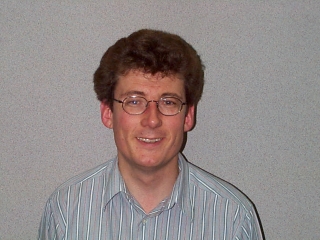
Roy first joined the Board of Directors in 1998. He has served as
Treasurer in the past, and was also last year's Chairman. He is an Engineer
and former I.T. manager for the City of Calgary Waterworks.
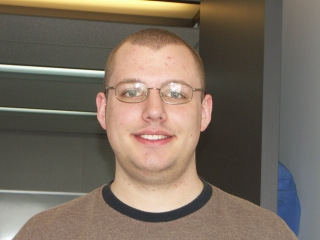
Anthony joins the Board of Directors for the first time this year.
I've been exposed to computers for most of my life, but I wasn't exposed to UNIX until I started at university. Once I started programming seriously, the limitations of Windows forced more and more of my activities onto UNIX until I didn't use anything else.
I have experience with AIX, Solaris and FreeBSD, but I primarily use MacOS X, OpenBSD, and Linux. I've tried most of the popular Linux distros, but I've settled on Debian for now.
When programming I primarily use one of C, Java, or Python, but I am familiar with a number of other languages because various projects have required them. I consider being accustomed to learning languages more important than any language in particular.
I plan to graduate from university in December 2005, and I have also
had the opportunity to do some development work in the industry.
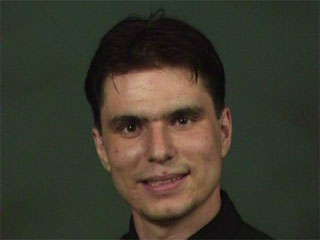
Brian first joined the Board of Directors last year. He was also last year's Secretary.
I was born into a computing society. From my earliest memories, there were always replacement keys and large, white round hard disks floating around the house. When I finally saved up a few dollars at about the age of 11, I got my first PC: an original IBM XT (not a clone!) with 256K of RAM and a 10MB hard drive. I learned Pascal and Intel Assembly that year.
At around the age of 15, I was on my second computer, an 8Mhz 8088 with a 14.4Kbps modem. I'd stumbled across a UUCP node called pepper.cuug.ab.ca during my BBSing days, and shortly thereafter joined as a CUUG member (under my dad's name, richardg) for the first time. This 8088 went through a lot of changes. During high school, I was learning C, and was unable to find a free C compiler. I'd played around with Linux with some friends, and needed something similar that would run on my horribly obsolete computer. AST's Minix ended up being the solution, and thus began my foray into the Unix world.
I've now played with Unices of many varieties, mostly x86 based, but
some SGI and Sun hardware too, as well as my iBook running Mac OS
Panther. My domain, cubik.ca, is about providing Open Source solutions
to business, based heavily on Java and Linux-based servers.
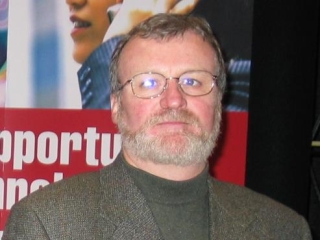
Greg first joined the Board of Directors three years ago.
I first started with computers in my high school math club in the late 60s when computer were room sized behemoths only affordable by governments and large corporations. The club built a simple one with very low tech components, but it tweaked my interest. I have been either studying computer science or working in IT since then.
My first paying job after university was with Univac 1100 mainframes where I migrated to the systems programming area. In those days (mid 70s) Univac shipped the source code for the 1100 OS and we applied source patches and regenerated the OS from source. Mainframes were lucky to stay up for a week so I spent a lot of time busting box sized OS dumps and developing fixes to buggy Univac code (sounds a lot like "open source" doesn't it). That era ended in the late 80s and by then I had moved on to more senior IT roles which eventually included planning for, operating, and supporting UNIX type environments.
Around 1990 I joined CUUG for the 1st time just to expand my knowledge of UNIX and meet folks who did what I used to do with mainframes. I remained a CUUG member for 5 or 6 years. I started tinkering with RedHat Linux 5.1 when it come out and got more deeply involved with UNIX when I joined Hewlett Packard in 1999 and had to administer HP-UX boxes to run and demo HP OpenView. I rejoined CUUG at that time and have been a member since, and on the board for the past 2 years. I left HP in 2003 and since then have been doing some HP OpenView consulting and also packaging my own systems monitoring solution using open source tools.
I think CUUG should strive to be the best organization for professional UNIX
support folks. We should be a forum for networking and a means for UNIX
focused professional development. I encourage all members to let me and the
other board members know how we can shape CUUG to better meet your needs as
a UNIX professional.

Ken first joined the Board of Directors in 1998. He has served as Chairman in the past, and was also last year's Vice President.
I have been a member of CUUG for several years and involved on the board or with committees for most of those years. My focus has always been with membership and its needs. In my position as Membership Committee Chairperson I have worked with a great group to complete several initiatives for the club and its members.
Sounds like a lot of work, but mostly it was a lot fun. It's for that reason that volunteerism has been 'catching on' lately and our committee group has grown. This was especially evident at our volunteer orientation in preparation for Convergence. Some have also realized, like myself, that there are career benefits as well. Not sure at this point whether I should be passing the 'Membership torch' or keeping it burning, but I'll probably continue to be involved with that Committee.
In real life I am a Systems Administrator (I've gotten way too good at
typing the 'Admin' word, I won't admit where that's coming from). I am
currently with one of our past sponsors: NE2 (Coincidence?)
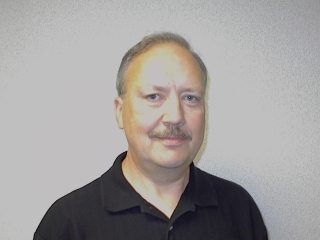
Howard has been a director since 2001, and has served as Vice President in the past.
I've been in the information technology business since 1968, working for various firms from Pan-American Petroleum (AMOCO) to Univ. of British Columbia, COMINCO and currently the City of Calgary. My work has primarily been in the operational areas of IT, from mainframe to distributed systems, networks to help-desks. I've held various positions from operator to network tech to Supervisor and currently I am working as a Management Systems Analyst with responsibility for project coordination within the division of the City's ITS department known as the Customer Centre. I also hold a CIPS ISP designation. My Operating system interests range from mainframe systems, should I say it Windows? to OS/2 to UNIX, Linux and BSD. I am also a CUUG volunteer at the Bethany Centre and have served for four terms as a CUUG Director.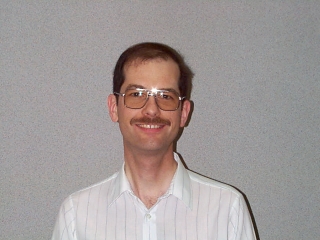
Alan first joined the Board of Directors in 1998. He has served as Vice President and Chairman in the past, and was also last year's Treasurer.
My first UNIX-related experience was with Multics, which I enjoyed
playing with while in university. I started using UNIX itself as a
grad student at the University of Calgary, where I was involved in
the Jade research project. Some of the technology from this project
was transferred to Willowglen Systems' new state-of-the-art SCADA
system, through which I learned more than anyone should care to know
about writing operating systems to run on Sun hardware. Experience
showed that this is not a viable long-term strategy, and that one is
better to stick with common standards, most notably UNIX. Following
my SCADA career, I did some oil-and-gas-related UNIX consulting.
I spent five years working for Hewlett-Packard and its spin-offs,
and am now a UNIX Systems Programmer for Kelman Technologies' Seismic
Data Processing division. I have been a member of CUUG since about
its second year of existence.
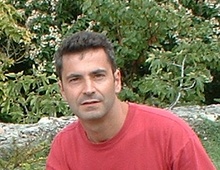
Yves served on the Board of Directors in the 1998/1999 year, and again for the last few months of the 2003/2004 year. He was also last year's President.
Working in the IT industry since 1986 I specialised on UNIX in 1989, in varied positions such as tech support, programmer, and sysadmin.
As an independent contractor for the past 12 years, I have been providing services to a wide range of customers from software companies, to financial institutions and oil and gas companies.
CUUG member since 1992, I served as a director in 1998, again for a few months in early 2004, and as president last year.
In a time where a lot of communities are becoming virtual and geographically
spread out, I would like to see CUUG focussing on UNIX in Calgary, and helping
to strengthen our local community of users, hobbyist, vendors, and
professionals.
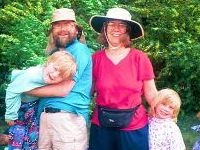
Richard joins the Board of Directors for the first time this year.
I have been using and programming computers since High School in the early 1970's.As a student at the University of Calgary, I was privileged to work on many different computers including Multics and early UNIXes.
After I graduated, I continued to work on Multics and many UNIX like systems on many different projects. Some of these projects involved development and support of Multics system software and compilers and operating system support on the Stratus's fault tolerant UNIX system FTX. My desktop machine was usually a UNIX workstation, and I used it as my portal even when working on other systems.
At home, I use mostly Linux systems, though I still have some old, much-loved apples, and a windows machine that we use for gaming and to read the occasional document (where we must use windows). I am currently using Mandrake Linux, (and occasionally Knoppix) but have used Slackware, and Red Hat 3, 4, and 5 in the past. I am now doing C++ programming for Kelman Technologies' Seismic Data Processing division working on Linux and Solaris. I have picked up an Open-BSD CD and hope to experiment with it as well...
I have enjoyed being a member of CUUG for the last year or 2 and I
feel that it is time that I help out.
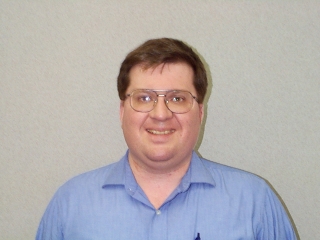
Mark first joined the Board of Directors in 1998, and has served as Chairman in the past.
I first discovered UNIX about the same time as its greater and cruftier progenitor MULTICS many years ago in university while studying physics and astronomy. I liked its combination of simplicity and power in a fairly smooth design that aided rather than hindered its users and developers.
Many years later both myself and UNIX are still around, though both are not what they used to be. Unfortunately UNIX has had the worst of what the years bring and now challenges and even exceeds MULTICS in some places for byzantine layered legacy design. I have also acquired many layers and like UNIX could bear to shed a few. Now my profession is mostly hardware as a field service technician, but my work does sometimes involve using and fixing UNIX computers and their distant kin like CISCO routers.
I have followed the Free and Open Software Revolution through GNU, Minix, Linux, and now Debian. I am glad computing is returning to its roots of sharing information in the tradition of the scientific and engineering professions, as building on what others have done and peer review is critical to correct, rigorous, and proper progress.
I strongly support CUUG's dedication to promoting and advancing UNIX, as UNIX even with its layers of somewhat dubious additions is still the best operating system we have. It is still a powerful tool, and many are working to backfile its lesser parts with better redesign, and develop new polished refinements to add to its power.
I have served on CUUG's Board of Directors from 1998 Jan to Jun, and
as Board Chairman from 2000 Jun to 2003. I am also deeply involved
with keeping the Computer Resource Centre running and working towards
improving it for CUUG's members. I would be proud to serve on our
Board for the next year.

Stephen joins the Board of Directors for the first time this year.
I started in computing with Raytheon 500's, processing seismic data, reading in punch card decks. At the end of one job, I sat down at my new PC (Intel 8086 based "Amstrad PC640") and taught myself to program in C ("Mix Power C"). After a couple of months, I decided that it would make for a challenging and esthetically pleasing career, so I signed up for a course. During that course, I ran into Unix for the first time.
Programming C on my home machine (running MS-DOS 4.x) was pretty frustrating. I'd fire up the debugger to walk through my code, and the machine would lock up. During the course, on the Unix box, I'd fire up the debugger, walk up and down, back and forth, and it just kept on ticking. Ah ha! Superior technology!
While on my first programming job (maintaining Fortran code tools for Atomic Energy Canada Limited), I'd access to a couple of old DEC Ultrix boxes. There, I managed to learn the rudiments of Unix, all the while comparing DEC VMS to Unix. VMS struck me as twisted. It seemed to have all the power of Unix, while going out of its way to differentiate itself as much as possible from Unix. Unix had NFS. VMS had DFS. VMS had the edt and eve editors. Unix had vi and emacs. Unix had the tree filesystem, while VMS had the same brain-dead thing that MS-DOS appeared to have. One day, I ran across a(n) IEEE based function point study describing the capabilities of various scripting languages. VAX/DCL: 650 lines. perl: 32!
I was always looking for some way to get Unix on my own machine. I almost sprung for Minix. I almost bought the resident Unix admin's then obsolete NeXT box. One day, I heard about Linux. One of the resident CO-OP students knew how to install it, and we did (after downloading ca. 32 floppies via 9600 bps modem). A couple of months later, Patrick Volkerding came out with Slackware, and I went to that, then Debian.
Somewhere along the line, I decided administration would allow me to make a greater impact on an overall organization, so I started concentrating on administration instead of programming. One day, a former colleague called saying she needed "a Unix guy" to work on the project she was on. I jumped at it, and have spent the past decade falling deeper and deeper in love with Unix. My contracts have since taken me from Grande Prairie, Alberta to Khartoum, Sudan.
I run Debian stable, write perl and html code, use both vi and emacs, have done Y2K upgrades on AIX, patch upgrades and OS and software installs on Solaris and HP-UX, have installed OpenBSD based mailservers for clients, have banged my head on bind/named/DHCP on FreeBSD, Apache on many, installed "Big Brother Network Monitor" in two separate networks, am ridiculously thankful to Richard Stallman, Linus Torvalds, Bill Joy, Larry Wall, Donald Becker, Theo and the OpenBSD bunch, and all the rest of them for having made it at all possible, and wouldn't trade a second of it for the moon.
I think CUUG's a treasure, and I'd like to help it stay that way and even improve. I think a more coordinated effort at marketing what CUUG's offering could further continued growth.
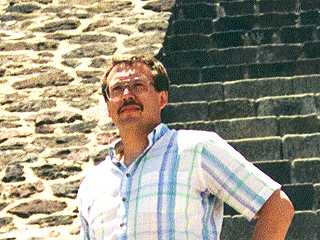
Terrell first joined the Board of Directors two years ago.
I started in computers in my first year of university when I happened upon an Olivetti P101 programmable calculator. This was my first introduction. Second year saw me switch my major and I ended up with a double major in pure math and computer science. At the time, programming was on the IBM system 360 using punched cards.
Upon graduation I moved to Calgary and took a job programming for the Geological Department of Home Oil. This was on an IBM mainframe and I used PL/I and Fortran in that environment. My career began as the punched card era closed. At this time, typically programs were batch oriented and we got maybe two (2) runs a day if we were lucky. We did a lot of desk checking of our code.
Within 5 years I was programming on an HP3000 mini computer and writing database driven interactive applications. In this new environment we were using glass TTY's and were able to compile perhaps 20 times a day. It was a tremendous improvement. Unix was not quite on the scene at that time and the PC was still a few years away.
By the mid 80's I started my career as a consultant. I had the mixed blessing of being able to work on many different operating systems and saw first hand the joy of incompatible systems and attempted vendor lock in. By the mid 80's I had purchased my own PC: a '286 with a megabyte of ram, 40 MB hard drive and a color display system (EGA). I recall I was in the bank picking up the cheque which was for about $10,000 and the cashier told me as she handed over the cheque that she just heard the space shuttle exploded.
At the time of this purchase, I was offered a complete HP3000 minicomputer, at a price about 1/2 the PC! Also available were some Unix machines, the AT&T 3B and a Sage, based on the 68000 processor. However they were considerably more expensive. The lower cost PC won in spite of a horrible operating system with terrible restrictions.
Within a couple years I was trying to shoe horn bigger programs into the next generation of this machine (a 486), using exotic overlay linkers and memory management systems that included EXTENDED and ENHANCED ram. Documentation was a nightmare. About this time UNIX was moving into the picture as a breath of fresh air but for me this was still a few years off.
With the coming of Linux on the PC, life became a joy. Finally I had the complete professional development environment I had relied upon in the mainframe and mini-computer world. Finally I was able to throw the last overlay linker manual in the trash - where it belonged from the beginning. More notably, this ushered in the idea of cross platform development and drove yet another nail into the coffin called "vendor lockin".
It was about this time that I found out about CUUG. I have really
enjoyed the opportunity to meet "Unix" people, many of whom share my
experiences of the frustration of dealing with vendor lock in and
inadequate systems sold to an unsuspecting public. Unix/Linux really
is a breath of fresh air and my only regret is that I didn't find it
20 years sooner.